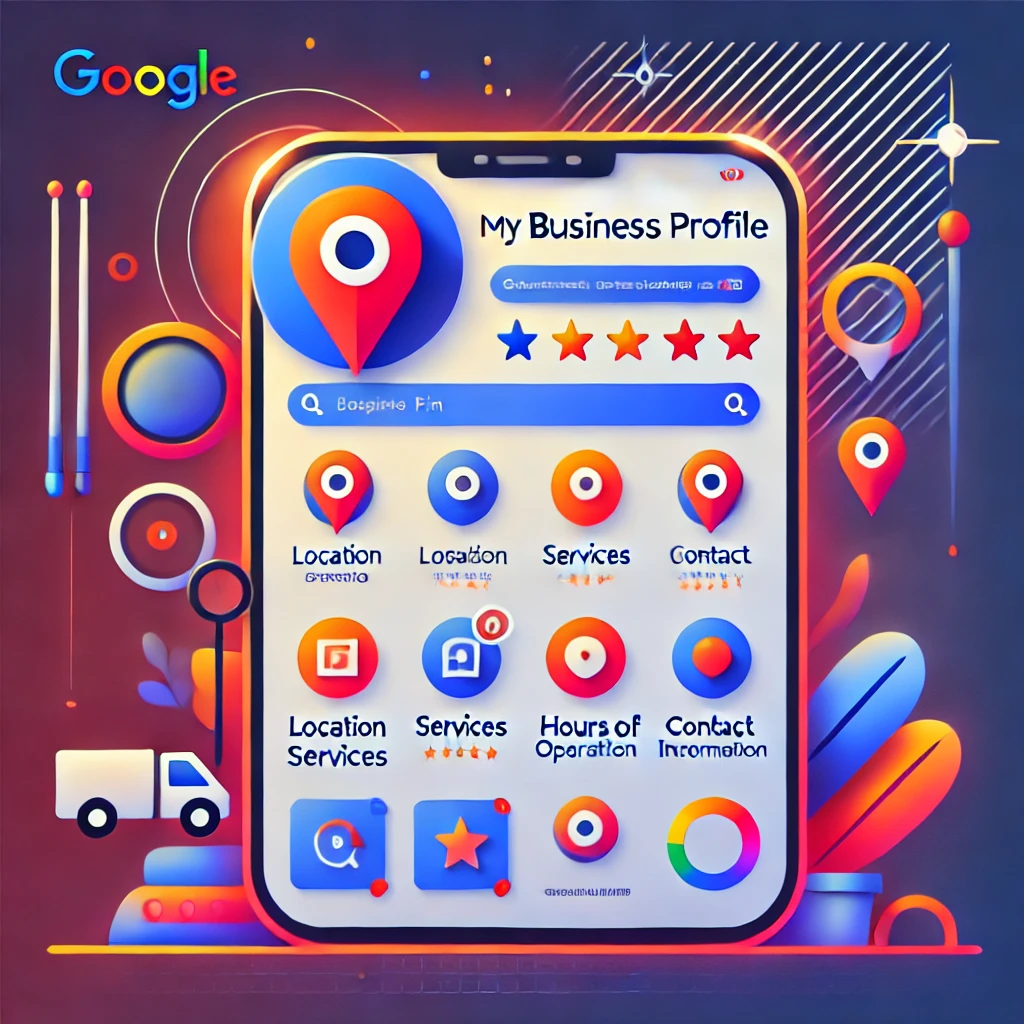Local SEO (Search Engine Optimization) is crucial for businesses that rely on attracting customers in specific geographic areas. By optimizing for local search results, businesses can increase their visibility to potential customers in their region, boost foot traffic, and ultimately improve sales. With more people using search engines to find products and services near them, dominating local search results is essential for staying competitive.
This blog post will walk you through the key strategies for optimizing your website and business for local SEO, ensuring you rank higher in local search results and get noticed by your target audience.
Claim and Optimize Your Google Business Profile
Why It Matters
Google Business Profile (formerly Google My Business) is a critical element of local SEO. It helps your business appear in Google Maps, local search results, and the Knowledge Panel on the right side of search results pages. A well-optimized profile can significantly improve your local visibility.
How to Optimize
- Claim Your Profile: If you haven’t done so already, claim your business listing on Google Business Profile. Ensure all the information is accurate, including your business name, address, phone number, and website.
- Add Categories and Attributes: Select relevant business categories and attributes to help Google understand what your business offers.
- Use High-Quality Images: Upload professional photos of your storefront, products, and services to give potential customers a better sense of what to expect.
- Encourage Reviews: Positive reviews improve credibility and increase local rankings. Encourage satisfied customers to leave feedback and respond promptly to reviews.

Optimize for Local Keywords
Why It Matters
Using relevant local keywords helps search engines understand where your business is located and what services or products you offer. Incorporating these keywords into your website's content ensures that your site appears when users search for local businesses like yours.
How to Optimize
- Conduct Local Keyword Research: Use tools like Google Keyword Planner or Moz’s Keyword Explorer to find keywords that include your location and are relevant to your business. For example, if you’re a bakery in Chicago, use keywords like “Chicago bakery” or “best cakes in Chicago.”
- Optimize Key On-Page Elements: Ensure your local keywords appear in critical on-page elements like title tags, meta descriptions, headers, and URLs. However, avoid keyword stuffing—make sure the text reads naturally.
- Create Location-Specific Content: Develop content that speaks directly to your local audience, such as blog posts about local events, partnerships with other local businesses, or how your business serves the community.

Ensure NAP Consistency Across Listings
Why It Matters
NAP stands for Name, Address, and Phone number. Consistent NAP information across all online platforms—such as your website, social media profiles, and local directories—helps search engines trust the legitimacy of your business. Inconsistent information can confuse both search engines and potential customers, leading to lower rankings.
How to Optimize
- Audit Your Listings: Review all the places where your business is listed online (Google, Yelp, Facebook, etc.) and make sure the NAP information is accurate and consistent across the board.
- Use a Single Format: Stick to a standard format for your NAP information and avoid any variations. For example, if you use “St.” in your address, don’t switch to “Street” on other listings.
- Correct Errors Promptly: Use tools like Moz Local or Yext to find and fix any inconsistencies across multiple listings.
Build Local Citations and Backlinks
Why It Matters
Local citations are mentions of your business’s NAP information on other websites, and backlinks are links from other sites to your own. Both citations and backlinks are critical for boosting local SEO. They signal to search engines that your business is credible and relevant to your local community.
How to Optimize
- Submit to Local Directories: Ensure your business is listed in local online directories, such as Yelp, Yellow Pages, and local chamber of commerce sites.
- Engage with Local Blogs and News Outlets: Reach out to local bloggers or news outlets to feature your business or partner on content that links back to your website.
- Sponsor Local Events or Organizations: By sponsoring local events or charities, your business may receive backlinks from their websites, further enhancing your local SEO presence.

Focus on Mobile Optimization
Why It Matters
With the majority of local searches coming from mobile devices, it's critical to ensure that your website is mobile-friendly. A site that doesn’t load quickly or isn't easy to navigate on mobile will negatively impact user experience and hurt your local SEO rankings.
How to Optimize
- Implement Responsive Design: Make sure your website adjusts seamlessly to different screen sizes, providing an optimal experience for mobile users.
- Improve Page Load Speed: Compress images, reduce redirects, and minimize JavaScript to ensure fast loading times. Tools like Google PageSpeed Insights can help identify areas for improvement.
- Make Navigation Simple: Ensure that your website's mobile layout is easy to navigate, with clear buttons, concise menus, and quick access to important information like your NAP details and contact forms.

Conclusion
Optimizing for local SEO is essential for any business looking to dominate local search results and attract customers within a specific geographic area. By focusing on strategies like claiming your Google Business Profile, using local keywords, maintaining NAP consistency, building citations, and optimizing for mobile, you can improve your local search rankings and drive more local traffic to your business.
Local SEO is not a one-time effort but requires consistent attention and optimization to maintain your rankings and keep up with changes in search algorithms. Stay proactive in managing your local SEO strategy, and you’ll enjoy long-term success in local search results.



